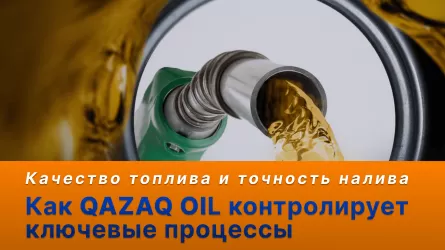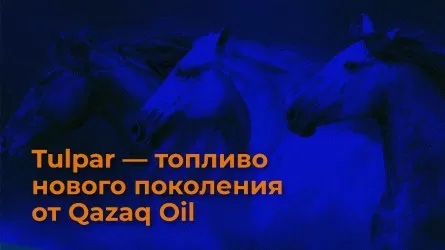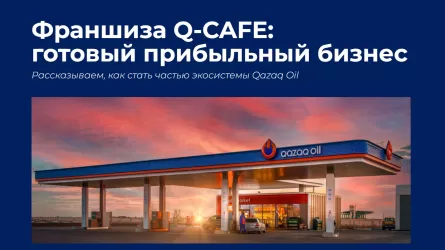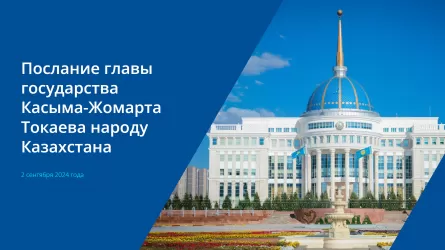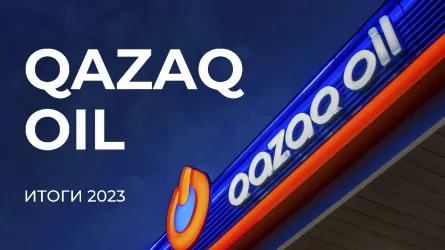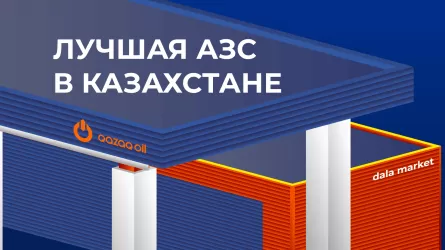The implementation of the Migration Policy Concept for 2023-2027 was considered at the Government session chaired by the Prime Minister of the Republic of Kazakhstan Alikhan Smailov.
Deputy Prime Minister – Minister of Labor and Social Protection of Population Tamara Duisenova noted that the measures taken within the framework of the Concept provided a positive balance of migration for the first time in the last 10 years. Mostly foreigners arrive for permanent residence from CIS countries, PRC and Mongolia. At the same time, more foreign citizens with technical, economic, pedagogical and medical specialties have arrived.
However, internal migration flows have also stabilized. Thus, since the beginning of the year more than 160 thousand people have participated in intra-country mobility. At the same time megacities of the republic continue to be the centers of attraction of internal migrants: they account for 40% of the total internal flow.
Tamara Duisenova also dwelled on the main directions of realization of the Migration Policy Concept. The first is educational immigration, the purpose of which is to position Kazakhstan as a regional educational hub. For this purpose, a comprehensive work on creation of branch universities with modern campuses and scientific laboratories is carried out. For two years, 6 branches of major foreign universities have been established on the basis of Kazakhstan universities.
As part of the development of business immigration, measures are being taken to expand the investment attractiveness of Kazakhstan. In particular, A-5 category investors were exempted from obtaining foreign labor permits. Since the beginning of the year such investor visas have been issued to 76 foreign citizens.
At the same time, the procedure for issuance of IIN and EDS in foreign institutions on the principle of "one application" for potential investors was simplified and the procedure for issuance of Ata Zholy card for ethnic Kazakhstan citizens who have successful business cases abroad was approved. As of today, a preliminary list of Ata Zholy card holders has been formed.
Within the framework of one more direction the work on attraction of qualified foreign specialists to Kazakhstan is carried out. Thus, since July 1, the subject work within the approved list of demanded professions has been started. Now foreigners who have professions from the list can apply for a residence permit in a simplified procedure.
Within the direction regulating ethnic immigration, the mechanism for accepting applications for the status of "kandas" has been revised. Thus, since July 1, foreign consulates of Kazakhstan began to work on the principle of "Single Window" when considering applications of ethnic Kazakhstan citizens.
In addition, within the framework of the Concept, work is being done to ensure the labor rights of Kazakh citizens working abroad. In order to ensure the observance of labor rights, the Ministry of Labor and Social Protection has taken additional measures to initiate new agreements with Turkey, UAE, Great Britain and other countries.
In conclusion, Tamara Duisenova spoke about the work to equalize demographic imbalances between labor-surplus and labor-deficit regions, as well as about new approaches to working with refugees.
The Minister of Science and Higher Education Sayasat Nurbek spoke on the development of academic mobility. The Minister of Internal Affairs Marat Akhmetzhanov spoke about measures to counter illegal migration. Akim of Kostanay region Kumar Aksakalov and Deputy Akim of Pavlodar region Aizada Kurmanova reported on the situation in the regions.
Prime Minister emphasized that the Concept of Migration Policy until 2027 is aimed at improving the existing and developing new approaches in the management of migration processes. One of its key directions is to attract highly qualified specialists to the country, including entrepreneurs who are potential investors.
"We can attract from other countries businessmen, specialists in in-demand professions. But at the same time it is necessary to pay more attention to stimulating the resettlement of citizens within the country in labor-deficient regions," Alikhan Smailov said.
Head of the Government drew attention to the fact that the work on the implementation of the regional quota is poorly carried out in Pavlodar, North-Kazakhstan regions and Ulytau region.
"It is necessary to take more effective measures to attract labor resources and build a clear interaction with akimats of labor-surplus regions. It is necessary to ensure the widespread establishment of appropriate centers for adaptation and integration. So far, such centers have not been created in Abay region, Akmola, Akmola, North Kazakhstan, East Kazakhstan and Kostanay regions," he pointed out.
At the same time, Prime Minister noted the need to take more effective measures to expand academic mobility with advanced foreign universities, as well as to intensify measures within the framework of programs to attract foreign teachers and young scientists.
According to Prime Minister, it is also important to ensure the effective implementation of projects aimed at attracting promising foreign businessmen to the country.
"We need to attract foreign highly qualified specialists where there is a lack of such professionals, so that in the future they could provide transfer of knowledge to domestic personnel," Alikhan Smailov said.
Prime Minister added that the Ministry of Labor together with the Ministry of Foreign Affairs should provide simplified entry for foreign citizens who have in-demand specialties or successful business projects abroad, for further realization of their potential in Kazakhstan.
In conclusion, Alikhan Smailov outlined the need to strengthen work to combat illegal migration, measures to protect the rights of Kazakhstan workers abroad and by the end of the year to implement a unified system of regulation of migration processes in the country, ensuring its integration with the system "Berkut".






